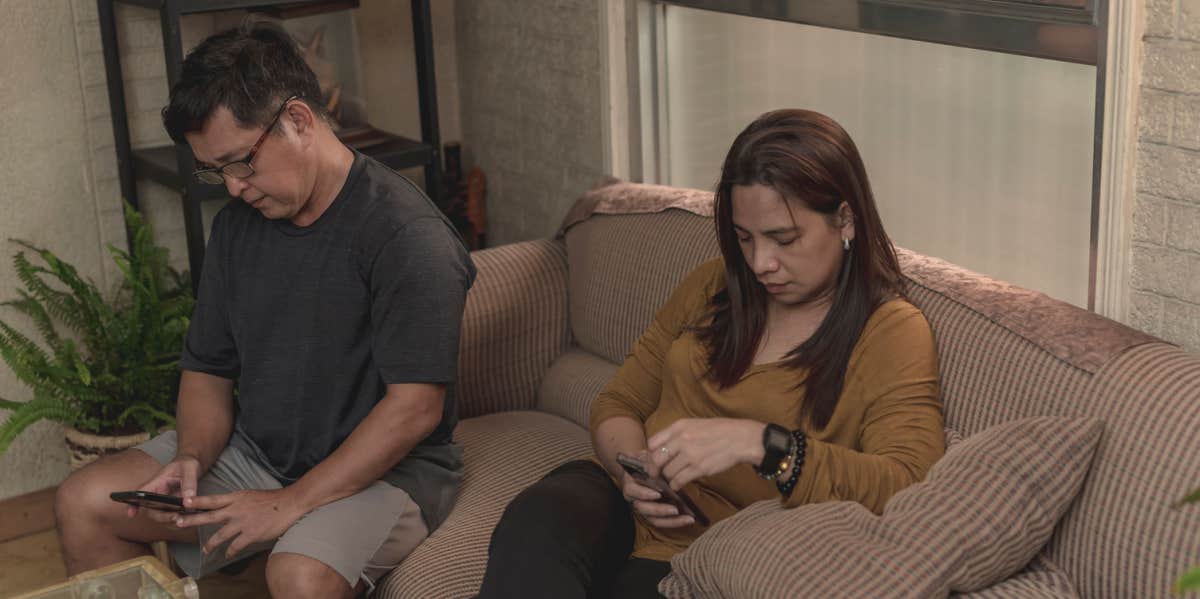The One Thing You Do Every Single Day That Will Destroy Your Relationship
Put this thing in your life down more often.
 MDV Edwards | Shutterstock
MDV Edwards | Shutterstock By Mike Pomranz
Back before smartphones, date night was about 2 people spending quality time alone together.
Now, thanks to the endless stream of messaging and social media updates available at our fingertips, even the most intimate dinner can be interrupted by literally every single person you’ve ever met. And research published in the academic journal No Kidding, Sherlock shows this phenomenon can put a strain on your relationship.
After all, you're actively ignoring the person in front of you to look at something that can wait, albeit as long as it's not an emergency.
Not only can everyone know about every last detail about your romantic antics, but it's also like they can actually be there too! The more the merrier some would say, although probably not your date, and you probably won't hear back from him either afterward.
It’s known as “phubbing” — a portmanteau of “phone” and “snubbing.
According to a 2015 survey of 453 adults conducted by researchers at Baylor University, ignoring your partner in favor of your phone will ruin your relationship and consequently your life, as all your attention and joy will come from a metal box in your hand and not the people in your life.
“What we discovered was that when someone perceived that their partner phubbed them, this created conflict and led to lower levels of reported relationship satisfaction,” said Professor James A. Roberts, Ph.D.
“These lower levels of relationship satisfaction, in turn, led to lower levels of life satisfaction and, ultimately, higher levels of depression.” Interestingly, the study also found that “one’s attachment style was found to moderate the Pphubbing,” meaning that those who were less secure in their relationships were more bothered by their partner’s phone distractions.
The Baylor team claims their study is “the first to investigate the oft-occurring behavior of phubbing and its impact on relationship satisfaction and personal well-being,” but more research is sure to follow as the habit spreads.
For more updates on the negative repercussions of staring at your smartphone, stay tuned to your smartphone. Maybe we'll manage to make a machine that will give us more hours in the day to stare at our phones.
Do you think there are ways that being on your smartphone all the time can actually improve you're relationship, or should the next time you go out on the town you and your partner leave the gadgets at home?
Mike Pomranz is a freelance writer and editor, he has been featured in Food & Wine, Comedy Central, Time, Tasting Table, MTV, and more.

